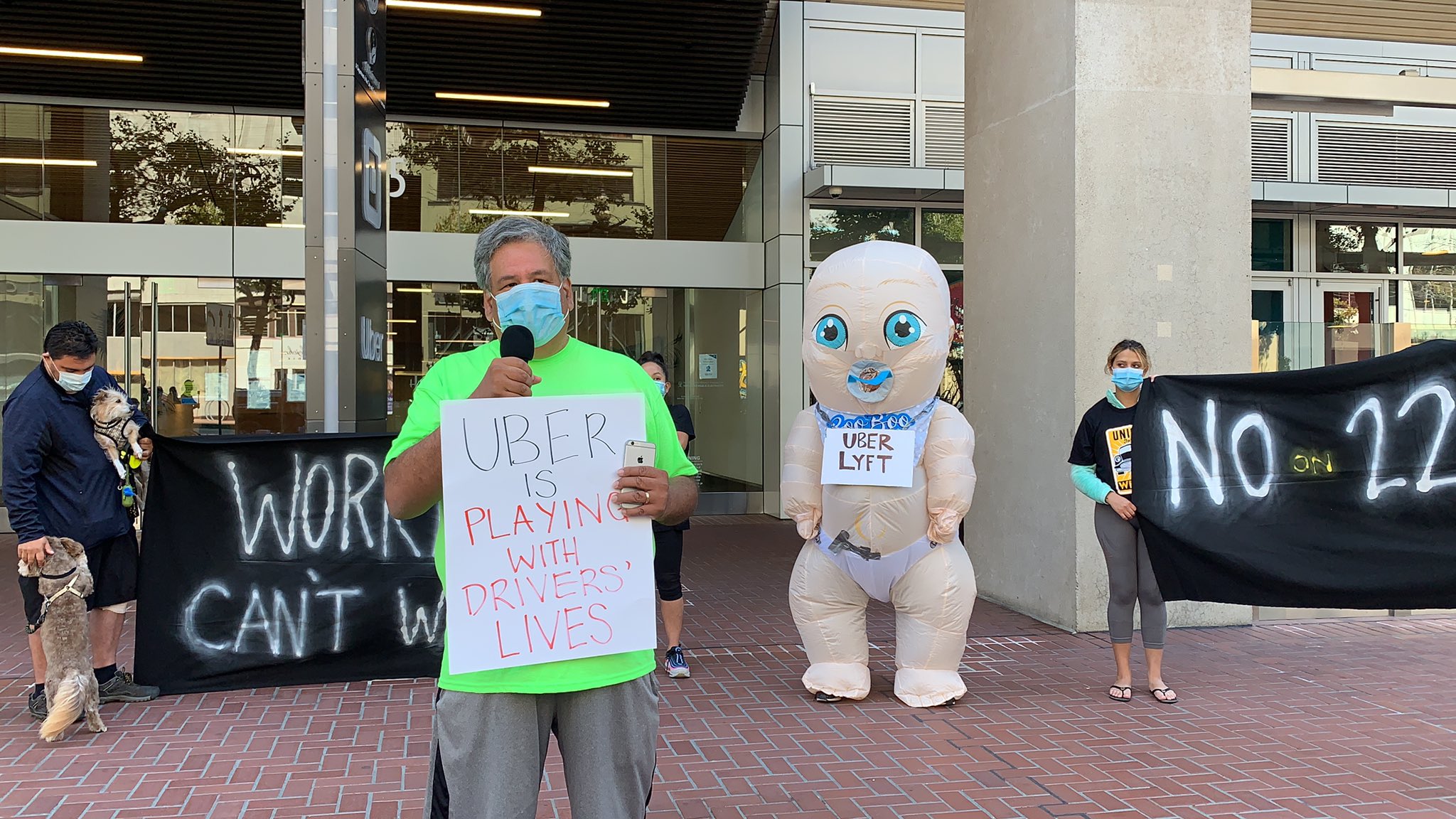In a major setback to gig economy workers’ struggle in the United States, an appellate court judge in California passed an injunction against an earlier court ruling on ride-sharing drivers, on Thursday, August 20. The injunction came within hours of ride-sharing corporations such as Uber and Lyft had threatened to suspend all operations in the state. Following the injunction they retracted their threats.
In April 2018, the state supreme court passed down a judgement that would have forced ride-sharing companies to reclassify their drivers, and others working in the gig economy as workers, instead of independent contractors. The judgement was followed by the state passing AB 5, a legislation instituting the judgement as law, in September last year and that into effect in January this year.
Both the ruling and legislation incorporates the ABC test, which among provisions that distinguish between a worker and a contractor puts the onus on the employer to prove that the employee is a contractor and not a worker.
Existing regulations on contract-based work by independent contractors, including freelancers, newspaper delivery and such, does not extend several protections that are otherwise afforded to average workers. Most important of these provisions is that of minimum wage protections, overtime pay, and healthcare coverage.
"It is increasingly difficult to ignore the millions of workers in the app-based economy deprived of basic labor protections—such as minimum wage, overtime pay, workers’ comp, unemployment —because their employers insist on illegally misclassifying them." https://t.co/O3fXl5TmV3
— Gig Workers Rising (@GigWorkersRise) August 21, 2020
Multi-million dollar lobbying campaign
A report by OpenSecrets, which documents lobbying efforts by interest groups, stated that in 2019 Uber and Lyft spent USD 1.2 million each to lobby against the AB5 in California. This year, Uber has already spent the same amount by June to lobby against union protection laws at the US Congress.
In California, the companies have fought tooth-and-nail against the legislation, targeting individual legislators and splurging millions on a ballot, to undermine AB5. According to the Wall Street Journal, in march Lyft and Uber spent close to USD 2 million and USD 200,000, respectively in a campaign against the sole Republican assemblyman who voted for the bill, Tyler Diep.
In 2019, a group of corporations, including the two, along with DoorDash, Instacart and Postmates, have also placed close to USD 110 million to campaign for a ballot measure, Proposition 22. The ballot measure will have Californians voting on certain crucial segments of AB2, and is scheduled to be voted on November 3, this year. The petition to call for the measure alone acquired over a million votes, but nearly all major labor groups and trade union federations have opposed the move, and called for citizens to vote against it.





